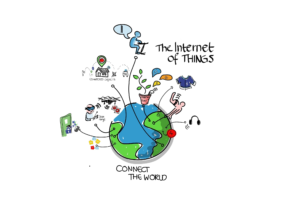The Rise of Electric Vehicles What It Means for the Future
The rise of electric vehicles is rapidly transforming the automotive landscape and impacting our future in profound ways. This evolution in transportation represents a fundamental shift towards sustainable and environmentally conscious mobility. This article explores the key factors driving this change, examining the various aspects of electric vehicle technology and their implications for the future of automobiles. It will address the challenges of widespread adoption, and highlight opportunities for individuals and businesses. We will examine the societal, environmental, and economic impacts of electric vehicles and look at the solutions available to address the issues. We will explore a range of topics from the technological advancements that are propelling electric vehicle adoption to the potential for sustainable transportation infrastructure.
The Technological Advancements Fueling the Electric Revolution
Battery Technology Innovations
Electric vehicles rely heavily on battery technology, and recent advancements have dramatically improved the performance and affordability of these power sources. Innovations in battery chemistry, such as lithium-ion batteries, have increased energy density and reduced charging times. This has led to greater driving ranges and reduced the range anxiety that has historically been associated with electric vehicles. Manufacturers are continuously striving to improve battery life and reduce the cost of production, which will make electric vehicles more attractive to a broader consumer base. For example, Tesla’s continuous research and development in battery technology has been crucial to the company’s success.
Charging Infrastructure Development
The availability of reliable and accessible charging infrastructure is critical for the widespread adoption of electric vehicles. The establishment of charging stations, both public and private, has significantly improved in recent years. Increased investment in charging infrastructure, including rapid charging stations, is essential to encourage the shift away from traditional gasoline-powered vehicles and facilitate convenient charging options. This has a significant influence on how electric vehicles are used.
Vehicle Design Improvements
Electric vehicle designs are evolving alongside technological advancements. Manufacturers are focusing on improving the aesthetics, performance, and overall driving experience of electric vehicles. The integration of advanced technologies, such as advanced driver-assistance systems (ADAS), into electric vehicle models provides drivers with added safety and convenience.
Improved Efficiency and Reduced Emissions
Electric vehicles offer substantial environmental advantages compared to their conventional counterparts. The electric motor’s inherent efficiency reduces emissions, improving air quality and mitigating climate change. Government incentives and regulations further encourage the transition to electric vehicles by providing tax credits and other financial benefits to consumers who purchase them. This shift towards sustainable transportation has significant implications for future mobility.
The Socioeconomic Impact of Electric Vehicles
Consumer Adoption and Market Trends
Consumer acceptance of electric vehicles is influenced by factors such as price, range, charging infrastructure availability, and perceived environmental benefits. Recent studies show a rising interest and adoption of electric vehicles by consumers. Government incentives and policies play a crucial role in promoting electric vehicles, encouraging the transition to sustainable transportation, and improving consumer appeal. The market trends show a continuous increase in the sales of electric vehicles.
The Impact on Traditional Automotive Industries
The rise of electric vehicles is forcing a fundamental shift in the traditional automotive industry. Automakers are facing pressure to adapt and invest in electric vehicle technologies to remain competitive. Some traditional automakers are also struggling with new technologies in production.
Job Creation and Economic Opportunities
The growth of the electric vehicle market creates new job opportunities in manufacturing, research and development, and maintenance. The development of charging infrastructure, battery production, and vehicle assembly require specialized skills, which will open new economic opportunities.
Government Policies and Regulations
Government policies and regulations play a crucial role in shaping the electric vehicle market. Regulations regarding emissions standards and incentives for electric vehicle adoption are influencing the industry.
Environmental Considerations and Sustainable Practices
Environmental Benefits
Electric vehicles significantly reduce greenhouse gas emissions compared to traditional gasoline-powered vehicles. This transition to electric vehicles helps in improving air quality and addressing climate change. The transition also provides a better long-term solution for environmental sustainability.
Sustainable Manufacturing Practices
Manufacturing electric vehicles requires careful consideration of sustainable practices throughout the supply chain. The use of recycled materials and the minimization of environmental impact throughout the manufacturing process are essential for long-term sustainability.
The Lifecycle of Electric Vehicles
The full lifecycle of electric vehicles, including manufacturing, use, and eventual disposal, requires careful attention to environmental factors. The careful management of waste materials is essential for protecting the environment.
Future Trends and Challenges
Emerging Technologies
Continued research and development in battery technology, vehicle design, and charging infrastructure are expected to further enhance the appeal and practicality of electric vehicles. Advanced materials and new designs have the potential to lead to remarkable improvements in the field. The growth of battery technology has significant implications for electric vehicle development.
Infrastructure Development
Expansion and improvement of public charging infrastructure are crucial to enable wider adoption and address range anxiety. The creation of dedicated charging networks will greatly improve the experience and increase the usage of electric vehicles.
Regulatory and Policy Frameworks
Government regulations and policies will play an important role in shaping the future of electric vehicles. Support and encouragement from relevant agencies are crucial for promoting electric vehicles.
Consumer Perspectives and Concerns
Range Anxiety
One of the primary concerns for consumers considering electric vehicles is range anxiety, which involves the fear of running out of battery power before reaching a charging station. This concern is often mitigated by the development of faster and more convenient charging networks.
Cost of Ownership
The initial cost of purchasing an electric vehicle is often higher than a comparable gasoline-powered vehicle. However, the long-term cost of ownership, including reduced fuel costs and potential tax incentives, can ultimately make electric vehicles more economical. These factors need to be fully understood and considered.
Availability and Variety
Consumer choice is another concern. The availability of diverse models and designs from different manufacturers, along with appropriate variety, will create a greater incentive for consumers.
Environmental Sustainability and Electric Vehicles
Reducing Carbon Footprint
Electric vehicles significantly reduce carbon emissions compared to traditional vehicles, contributing to a more sustainable transportation system. This shift towards greener transportation has significant implications for global environmental protection.
Sustainable Battery Production
The production and disposal of batteries used in electric vehicles also need careful consideration. Manufacturing processes should focus on utilizing recycled materials and minimizing environmental impact.
Future of Mobility
Electric vehicles have the potential to revolutionize how we think about mobility. This technology offers significant solutions for sustainability and reduced pollution, setting the stage for a more sustainable future.
The Global Market and International Cooperation
Global Market Trends
Electric vehicle adoption is not limited to one region or nation. The growth in the electric vehicle market is driven by environmental concerns, government incentives, and increasing consumer interest. This increase in adoption has remarkable implications for the future of the automotive industry.
International Collaboration
International cooperation and knowledge sharing are crucial for accelerating the transition to electric vehicles worldwide. Collaboration on technological advancements, infrastructure development, and policy frameworks is essential.
Policy Implications and Recommendations
Government Support
Governments play a key role in encouraging the shift to electric vehicles. Financial incentives, such as tax credits, can make electric vehicles more affordable and encourage adoption. This is key in accelerating the transition.
Industry Partnerships
Collaboration between the automotive industry, government agencies, and technology companies is vital for developing robust electric vehicle infrastructure and support systems. Cooperation between different entities is key for the advancement of electric vehicles.
Consumer Education
Providing accurate information and addressing consumer concerns, such as range anxiety and cost of ownership, is vital for fostering trust and promoting the widespread adoption of electric vehicles. Education and awareness campaigns are key to promoting electric vehicles.
The Future of Electric Mobility
Enhanced Infrastructure
As electric vehicle technology advances, infrastructure will also need to adapt. Advanced charging infrastructure, such as wireless charging, and optimized charging networks, are important in making electric vehicles more convenient. This will support long-term adoption and use.
Addressing Range Anxiety
Addressing range anxiety is a major concern for consumers adopting electric vehicles. Continued development and improvements in battery technology and charging technology will alleviate some of the concerns. This will facilitate the overall adoption of electric vehicles.
Integration with Smart Cities
Electric vehicles can be integrated into smart city infrastructure, providing opportunities for data collection and improved urban planning. This will enable a more efficient transportation system in cities and communities.
In conclusion, the rise of electric vehicles is reshaping the automotive industry and the future of transportation. It presents both challenges and opportunities for businesses and individuals. By embracing this technology, governments, consumers, and manufacturers can create a cleaner, more sustainable future. To stay ahead of the curve, research and development of battery technology and charging infrastructure need to continue. Consumers should consider the benefits and drawbacks of electric vehicles and consult with experts to make informed decisions.
Share this content:














Post Comment